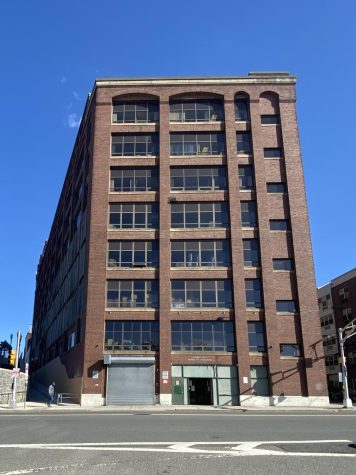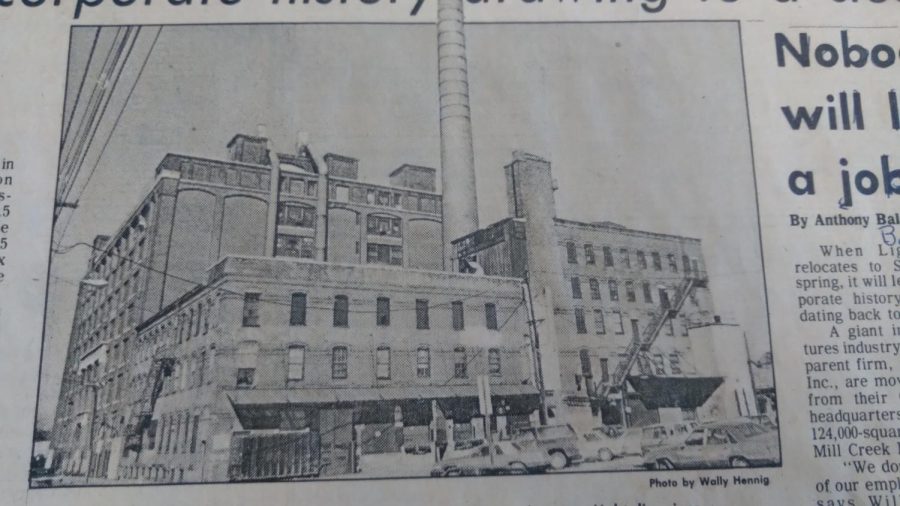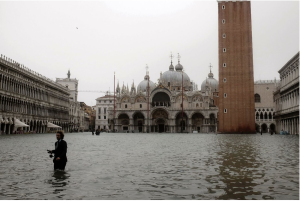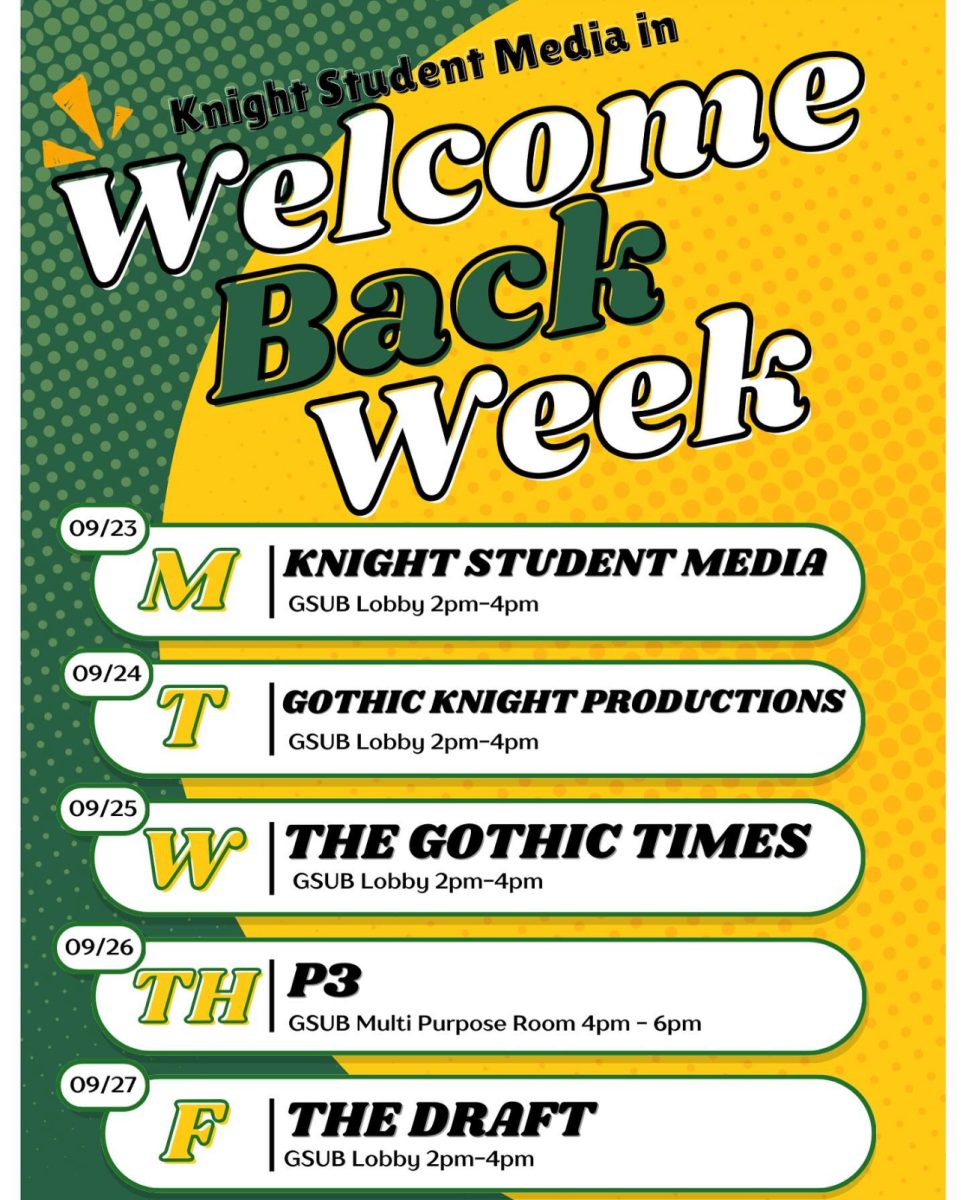The Bittersweet History of a Building Near Campus
A historical image of the Jersey City Board of Education (JCBOE) building. Photo courtesy of the New Jersey room at the Jersey City Free Public Library.
May 9, 2022
Every day, hundreds of students get off at the West Side Avenue Light Rail stop when coming to NJCU. Along the way, they pass an eight-story red brick building adjacent to the station. You would probably never guess that the building almost became the world’s largest candy factory.
In 1921, the Continental Candy Corporation, formerly the Novelty Candy Company, began building a factory on the corner of Claremont and West Side Avenue because their decade-old office near present-day Exchange Place wasn’t big enough. According to a 1910 clipping from The Jersey Journal, they manufactured “all kinds of confectionery, crackers, and cake.” But within two years of its construction, the company filed for bankruptcy and couldn’t afford to continue building. So, the property was taken over by a few different companies for the next couple of years, including Western Electric, which would later be bought by AT&T, and the Jenkins TV Corporation, which would create the first TV station in America. The lighting fixtures company Lightolier, which still exists, eventually took ownership of it in 1927.
“I wouldn’t want it as a factory, it looks better as the board of ed building,” said Lesly Almonte, one of the many NJCU students who pass by it during her light rail commute.

It is currently the headquarters for the Jersey City Board of Education. Local historians will also tell you that it was one of the main factory plants for the lighting fixtures company Lightolier where elegant chandeliers were made. But what they won’t tell you is how its history parallels that of America.
Jerry Randall, a security guard who worked at the building for more than 20 years remembered, “there were explosion-proof chambers and even though it doesn’t look like it, there’s actually three separate buildings.” Instead of demolishing what was already built, Lightolier decided to repurpose and expand the main building as a factory for their company until they moved to Secaucus in 1986. That year, the building became what most Jersey City locals know it as, the headquarters of Jersey City’s Board of Education.
During the early half of the twentieth century, America was going through an economic boom that began after the end of the second World War. “Jersey City’s industry and factories relied on the railroads concentrated on the waterfront,” said John Beekman of the Jersey City Public Library’s New Jersey Room.
Many well-known industries like Colgate, Dixon Ticonderoga, and the Atlantic Pacific Company (A&P) were once based downtown near the waterfront. “Once the Interstate Highway System was created and container shipping became a dominant means of transport, there was no need for the factories downtown, and the companies who owned those factories moved or shut down,” Beekman continued. Some of the factories, like the one for Lorillard Tobacco, were demolished. Others, like the Whitlock Cordage plant, were converted into apartments. The effect is an example of what would come to affect not just Jersey City, but the entire nation: gentrification.
Gentrification unfortunately still has its impact on the middle-class as the rapid urbanization not only affected downtown, but also neighborhoods like Journal Square, McGinley Square, and Bergen-Lafayette. Increased taxes and housing that’s unaffordable for most have forced thousands and thousands of people who lived in Jersey City for decades to move to towns that are sometimes several states away. Many who grew up remembering the city as one close-knit community often come back to their old neighborhoods, thinking they’re in “the sixth borough of New York” as the city has been called lately. The Claremont Avenue building and the area within it serve as a reminder of the gentrification that’s prevalent not only within its vicinity but in metropolitan areas all across America.













